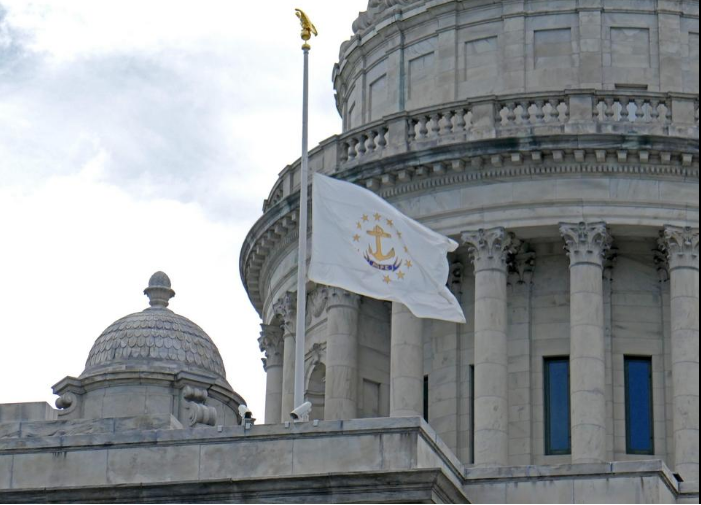
The first public word of Rhode Islanders dying of coronavirus disease came on a Saturday. It was March 28, when the state Health Department issued a press release:
“Two persons with underlying medical conditions are the first Rhode Islanders to die from COVID-related illness,” it read. “One individual in their 80s died Friday, March 27, at night and the other individual in their 70s died today.”
Those who had followed news of the first confirmed cases in the state, announced on March 1, perhaps suspected that tragic milestone was inevitable. Soon, as the daily toll of lives lost accelerated, it seemed death of epochal proportion would be inevitable, too.
But could anyone have foreseen 1,000, the number reached on July 23?
Did anyone imagine the suffering inside hospitals, nursing homes and elsewhere — suffering that also wounded families, neighborhoods, communities and a state of 1 million?
Or the circumstances of those 1,000 last days – when, with rare exceptions, loved ones could not be present to smooth a brow or bid farewell with a kiss.
Or the wakes, funerals and burials that were curtailed, if held at all.
We cry.
We remember.
We look to the future, to the possibility of new terrible numbers.
We try to make sense of the senseless.
But can we?
Consider: The year 2019 ended, and 2020 dawned, with the customary holiday traditions, the celebrations and resolutions, the plans for school and work and leisure. A virus that had emerged on the other side of the world was on the other side of the world.
The first mention in a Journal-written story of what would come to be known as COVID-19 was on Jan. 22, in a story about flu season, which comes every year. The mention was just three paragraphs long. Two of them read:
The [Health] Department continues to monitor the outbreak of the deadly coronavirus in China with the federal Centers for Disease Control and Prevention. The virus has killed 17 and the first American case, a man in Washington who traveled to China, was confirmed on Monday. The man fell ill but is recovering.
“While CDC considers this is a serious public health concern,” the agency wrote on its website, “based on current information, the immediate health risk from 2019-nCoV [the strain of virus] to the general American public is considered low at this time. Nevertheless, CDC is taking proactive preparedness precautions.”
Five months later, 1,000 lives.
One thousand grandparents, parents, siblings, children and friends.
Many lived in nursing homes. But not all.
Most were older, including some two dozen people in their 100s. But not all. People from 10 to 29 died, along with people in their 30s, 40s, 50s, 60s, 70s, 80s and 90s. People of all races.
And people from most communities. Only Barrington, Charlestown, East Greenwich, Foster, Glocester, Jamestown, Narragansett, New Shoreham, Portsmouth, Richmond and West Greenwich have been spared.
Each lost to COVID-19. Even the name is dystopian, like a villain in a King or McCarthy novel, a movie from Hitchcock or Romero.
Can we make sense of the senseless?
Wise people say yes.
“With these 1,000 deaths we are driven to rethink how we value life,” said Michael D. Kennedy, Brown University sociology professor. “We can be moved to resentment for those disruptions we manage in order to protect others, but we can also find a love beyond our familiars, a spirit of solidarity, inspired by those risking more to assure our health and daily needs. May the memorial of these 1,000 deaths be a sounder state of hope in which we all reside.”
“Suffering unleashes love,” the Rev. Marcel Taillon, pastor of St. Thomas More Parish in Narragansett, told The Journal. “There is so much suffering but love is more evident and exposed. That is my experience. It is the cross.”
The Rev. Chris Abhulime, senior pastor of King’s Tabernacle Church in Johnston, which has a largely African-American congregation, also struck the theme of suffering, noting that “COVID19 has undoubtedly inflicted inexplicably deep pain that has dented our psyche,” regardless of one’s faith beliefs.
Such profound anguish, the pastor said, is not “devoid of purpose.” Rather, he asserted, it can open the mind to deep reflection.
“We are once again reminded of humanity’s frailty and the fragility of the institutions that surround us,” Abhulime said. “Therefore, we lend our shoulders to cry on, and remind ourselves that we need each other to survive.”
Rabbi Sarah Mack of Temple Beth-El in Providence brought a Jewish perspective.
“The Talmud reminds us that each human being is a world entire,” she said. “Each death is a deep loss to humanity and loved ones alike. The Hebrew word for life, chayyim, is always written in the plural, another reminder of the inherent depth and value of human existence.
“Numbers alone can’t quantify the extent of loss in this moment. Each soul lost to this pandemic leaves behind innumerable grief. As we attempt to grasp the meaning of 1000 deaths here in R.I., let the tragedy impel us to go forth tirelessly to preserve life.”
And Umer Akbar, community member of the Islamic Center of Greater Attleboro, provided insight from his faith, saying, “In Islam, life is sacred and preservation of life is of utmost importance. The loss of life is among the most difficult to bear, thus patience is most highly rewarded in the next life.
“From a non-faith perspective, I believe that the damage done by this pandemic is impossible to quantify accurately, and the effects, negative and positive, are and will be extensive.
“In the end, if we learn to cooperate and help those in need, and reinforce the positive effects and lessons, then society will have emerged stronger after this pandemic.”
On July 23, the national death toll was over 143,000.
The global number of lives lost had crested at 625,000.
And Rhode Island reached and surpassed 1,000.
We cry.
We remember.
In suffering, may we find love.
CREDIT: PROVIDENCE JOURNAL
